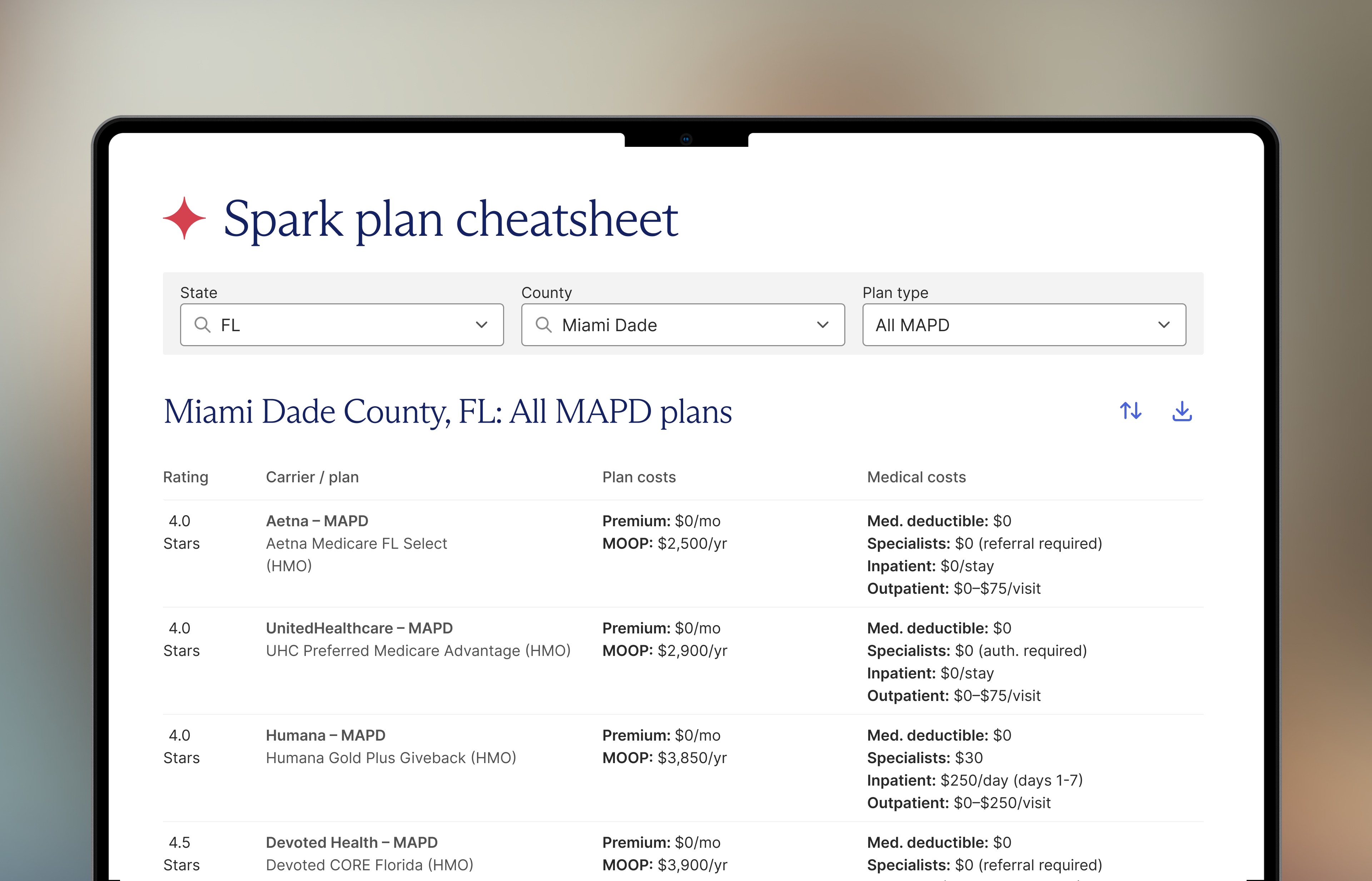After last year’s proposed rule sent the Medicare broker world into chaos, CMS’s 2026 Final Rule lands with a dull thud. No sweeping changes to broker compensation, no crackdown on marketing tactics, and no new compliance rules to navigate.
However, plans and pharmacies face several meaningful changes that will affect brokers. And while brokers weren't the focus this year as they were in 2024, CMS has merely postponed rather than abandoned potential reforms. This makes 2025 a crucial year for the distribution industry to engage with CMS and help shape meaningful reforms for 2026.
What’s changing
Let's focus on the three changes most relevant to brokers - changes clients will ask about and brokers need to explain:
First, the Medicare Prescription Payment Plan took effect at the beginning of 2025. Under this program, Part D enrollees can opt to spread their out-of-pocket prescription drug costs into predictable monthly payments. Instead of paying a $500 bill in January, beneficiaries can distribute that amount throughout the year. Though optional, plans must offer this program, notify eligible enrollees, and manage enrollment. For brokers, this adds another element to enrollment conversations (often for non-commissionable plans) and may confuse clients accustomed to paying larger amounts early in the year.
Second, CMS finalized changes that aim to enhance the beneficiary experience in Dual-Eligible Special Needs Plans (D-SNPs) by simplifying enrollment notices, integrating Medicare and Medicaid materials, and requiring clearer plan materials. These changes should benefit brokers working with D-SNPs by reducing confusion and making it easier for beneficiaries to navigate the complexities and dual eligibility requirements of Medicare and Medicaid.
Third, CMS now restricts plans from retroactively denying previously approved inpatient admissions unless fraud or clear error is involved. For brokers, this change may reduce member complaints but requires a better understanding of how each plan handles approvals and how these processes are evolving.
What got shelved
Several significant proposals from the December 2024 proposed rule didn't make it to the final version.
Most notably, the Biden administration's proposal to expand Medicare and Medicaid coverage for anti-obesity medications was excluded. CMS had estimated this would have provided coverage for 3.4 million additional enrollees at a cost of approximately $25 billion over ten years.
Also missing are new frameworks for regulating artificial intelligence in utilization management and updates around Medicare Advantage compensation and marketing.
Takeaways for brokers
There are two key takeaways for brokers and brokerages.
First, changes to marketing and compensation have been postponed, not canceled. CMS is still determining the path forward on these issues.
Second, this rule reinforces the broker’s role as a navigator for beneficiaries trying to make sense of changes from their plans and providers. The prescription payment plans and provider notification changes will spark client confusion. These changes aren’t seismic, but they’ll increase client dependence on brokers who can cut through the noise.
For now, the storm from 2024 has passed. CMS’s 2026 final rule is technical and measured. It sidesteps the controversial reforms and only offers modest changes for brokers.
Where the industry needs to go
Since CMS has tabled the reforms from 2024, brokers now have the opportunity to work with CMS to shape those changes if and how they come into effect.
We’d like to see several potential improvements introduced, but we’ll briefly touch on three.
First, we’d like to see CMS streamline carrier certifications. Every July, brokers take the universal AHIP test, and then take individual certifications for each carrier they plan on selling. Since carriers generally won’t finalize their plans until later in the year, those certifications are redundant and incomplete. They test more for patience than for mastery of material. The Federal Marketplace for ACA already employs a universal test. We’d like to CMS to do away with individual carrier certifications so that brokers can more easily represent carriers and expand consumer choice.
Second, we think there’s much needed reform as it relates to compliance. Unfortunately, a small number of non-compliant brokers damage the reputation of all brokers. CMS should implement more targeted and proactive compliance enforcement using new technologies (such as automatic AI-based call recording reviews) to identify and remove bad actors.
Lastly, the compensation framework for brokers and agencies requires more transparency and fairness. CMS should standardize administrative overrides and co-op marketing to eliminate potential bias when brokers enroll beneficiaries into plans.
CMS may have paused major changes this year, but conversations with the new administration are just getting started. The broker community has a window now to develop thoughtful regulation that strengthens the industry and better serves Medicare beneficiaries. Let’s not waste the opportunity.







.png)






.png)
.png)

.png)
.png)














.png)
.png)




.png)


.png)
.png)

.png)


.jpeg)
.jpeg)




.png)







.png)








.png)
.png)




